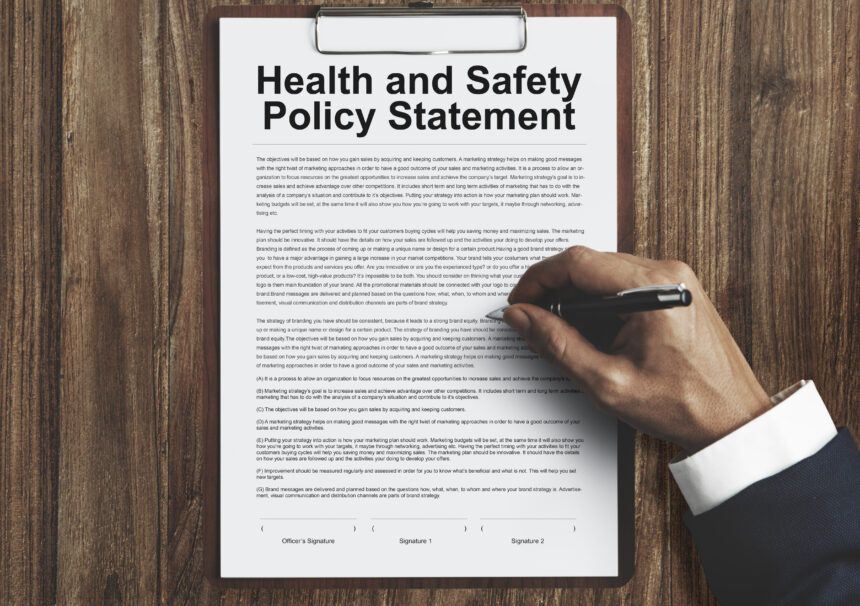Title: Tips for Evaluating Health Insurance Policies and Fine-Print Clauses
Introduction
Choosing the right health insurance policy is a critical decision that can significantly impact your access to healthcare and financial well-being. When evaluating health insurance policies, it’s essential to carefully review the terms, conditions, and fine-print clauses to ensure you understand the coverage and potential limitations. In this article, we will provide you with valuable tips for evaluating health insurance policies and navigating the fine-print clauses effectively.
- Read and Understand the Policy Documents
Take the time to read and understand the entire policy document, including the fine print. This will give you a comprehensive understanding of the coverage, exclusions, limitations, and conditions associated with the health insurance policy. Pay attention to key sections such as coverage details, deductibles, copayments, exclusions, waiting periods, and claim procedures. If certain sections are unclear, reach out to the insurance provider for clarification.
- Assess the Coverage and Benefits
Evaluate the coverage and benefits provided by the health insurance policy. Consider your specific healthcare needs and ensure that the policy adequately covers the services and treatments you require. Look for coverage related to hospitalization, doctor visits, prescription medications, preventive care, specialist consultations, and emergency services. Assess any limitations or exclusions that may impact your ability to receive necessary treatments or access preferred healthcare providers.
- Review Exclusions and Limitations
Exclusions and limitations are crucial aspects of health insurance policies. These provisions outline the conditions or treatments that are not covered or have specific restrictions. Pay close attention to the fine-print clauses regarding pre-existing conditions, experimental treatments, cosmetic procedures, dental care, vision care, and alternative therapies. Understanding the exclusions and limitations will help you manage your expectations and plan for potential out-of-pocket expenses for non-covered services.
- Consider Waiting Periods
Waiting periods are periods of time during which specific services or treatments may not be covered. Evaluate the waiting periods mentioned in the policy, particularly for pre-existing conditions, maternity care, and certain procedures. Waiting periods can vary from policy to policy, so ensure you are comfortable with the waiting periods specified in the policy you are considering.
- Assess Deductibles, Copayments, and Coinsurance
Deductibles, copayments, and coinsurance are cost-sharing components of health insurance policies. Assess these factors to understand your financial responsibility when seeking healthcare services. Evaluate the amount of the deductible (the amount you pay before insurance coverage kicks in), copayment (fixed amount paid for specific services), and coinsurance (percentage of costs you are responsible for). Consider your financial situation and ability to meet these costs when evaluating different policies.
- Evaluate Network Providers
Review the network of healthcare providers associated with the health insurance policy. Ensure that the policy includes a network of doctors, hospitals, specialists, and clinics that you prefer or are conveniently located. Assessing the network providers will help you determine if you have access to the healthcare professionals and facilities that align with your healthcare needs and preferences.
- Understand Claim Procedures and Timelines
Familiarize yourself with the claim procedures and timelines outlined in the policy. Understand how to submit claims, the required documentation, and any specific time limits for claim submissions. This knowledge will help you navigate the claim process smoothly and ensure timely reimbursement for covered expenses.
- Seek Professional Advice
If you find it challenging to evaluate health insurance policies or decipher complex fine-print clauses, consider seeking advice from insurance professionals or brokers. They can provide valuable insights, help you compare different policies, and assist in identifying potential red flags or hidden provisions. Insurance experts can guide you through the evaluation process and ensure that you make an informed decision.
Conclusion
Evaluating health insurance policies and understanding fine-print clauses is crucial for making informed decisions and selecting the right coverage for your healthcare needs. By reading and understanding the policy documents, assessing coverage and benefits, reviewing exclusions and limitations, considering waiting periods, evaluating deductibles and copayments, assessing network providers, understanding claim procedures, and seeking professional advice, you can navigate the evaluation process effectively. Remember, thorough evaluation empowers you to choose a health insurance policy that provides comprehensive coverage and meets your specific healthcare requirements.










